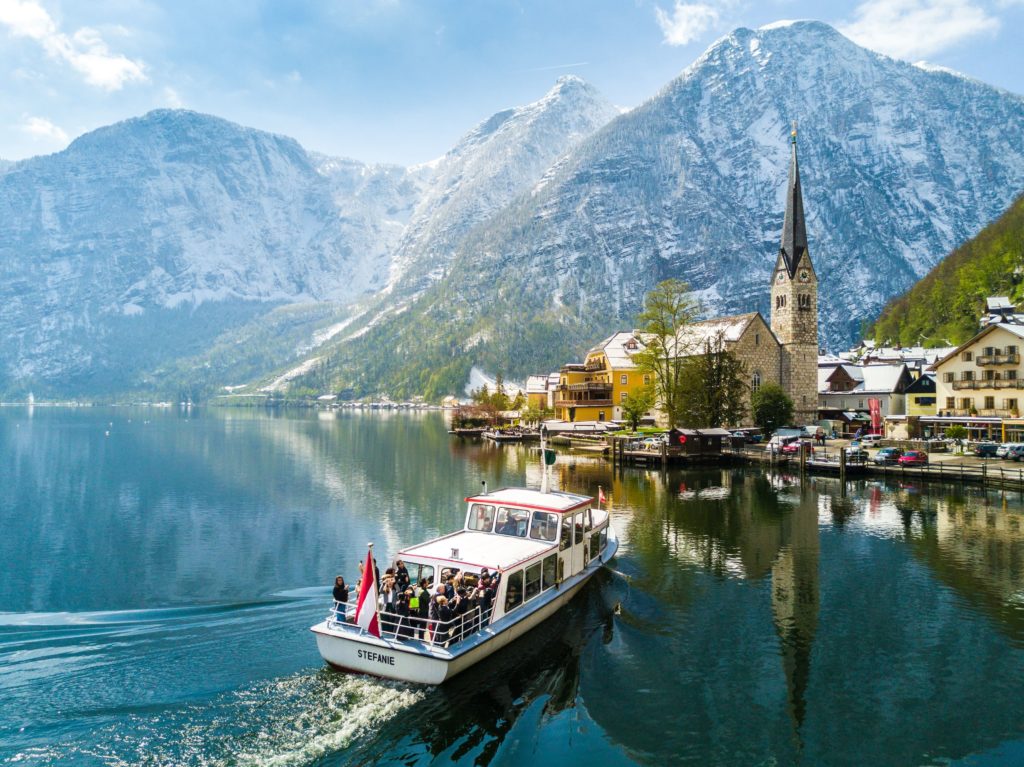Indians are free to purchase landed properties in Austria without any limitations.
Once a property has been chosen, submit a formal, written offer through a real estate agent. An itemized list of associated transaction costs, including legal fees, property transfer taxes, registration fees, notary fees, and real estate agent commissions, is attached to the offer agreement (Kostenaufstellung).

An Austrian solicitor/notary drafts a purchase agreement or sale contract once the seller accepts the offer. 10% of the total purchase price may be required as a deposit when the contract is signed. This money is held in an escrow or trustee account until the sale is completed. Once everything is finished, your attorney will pay the transfer and registration fees and register the transfer detail at the nearby registrar’s office.
About 4.5% of the property’s worth goes toward property registration charges. The total time required to complete all three steps in Austria to register a property is 9 to 32 days on average.
Legal fees
1% to 3% of the purchase price plus 20% VAT is often charged to set up the contract by a lawyer or notary.
Property Transfer Tax
This tax is typically assessed at a fixed rate of 3.5% of the value of the property. For transfers between immediate family members, the transfer tax is lowered to 2%.
Tax on Value Added (VAT)
The Value Added Tax (VAT) is due on newly constructed properties.
If the property is leased, the owner can recoup the 20% VAT. However, in this scenario, the rental income will also be subject to VAT and a tourist tax of roughly €0.10 per person each night.
Registration Duty
The Land Register must receive payment for registration duty.
Notary fee
The contract must have both the buyer’s and the seller’s signatures authenticated. You can accomplish it through a notary or a court for a maximum of €120 per person (plus 20% VAT); the court’s cost might be a little different than the notaries.
Fee for a Real Estate Agent
A real estate agent’s commission is capped by law at 3% to 4% of the purchase price or market value of the property. Both the buyer and the seller are responsible for paying the agent’s commission.
Purchase particularities: for permanent or temporal residence
Property cannot be acquired for residing only part-time, or less than six months a year. The Austrian government takes precautions against foreigners buying up real estate to use as “the second home”:
Reservation made by Municipal Council
This plan works in the tourist-friendly cities of Vorarlberg, Salzburg, and Tirol. Many foreigners seek out property ownership to generate rental income or to have a vacant home to reside in.
An official statement of property usage
A buyer should confirm right away that he is buying a landed property for permanent habitation. The inspection committee will impose a 25 000 Euro fine if a proprietor continues to violate the rule. Austrian authorities must stifle demand to prevent prices from rising too high because real estate there is generally less expensive than in wealthy Germany or any other wealthy European nation, and many wealthy people want to acquire it. All buildings should be maintained by the city municipality, but the state does not profit from this.
Conclusion
EU citizens have the same rights as Austrians themselves when purchasing properties in Austria.
Private individuals typically lack the right to own real estate, however, legal entities recognized in the European Union are permitted to purchase commercial assets.
Due to their popularity as tourist attractions, Vorarlberg, Salzburg, and Tirol appear to have the most stringent and difficult requirements for purchases.
Each of the nine regions that make up the Alpine Republic has its restrictions and rules regarding the purchase of real estate.
In Graz, purchasing real estate is simple and does not require permission from the local government.



